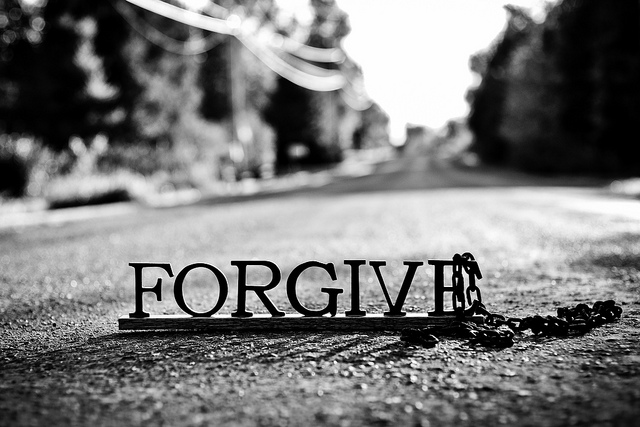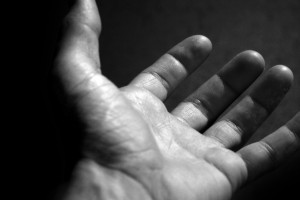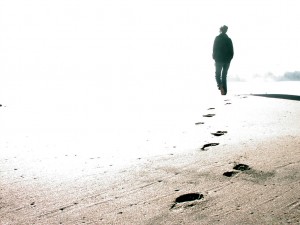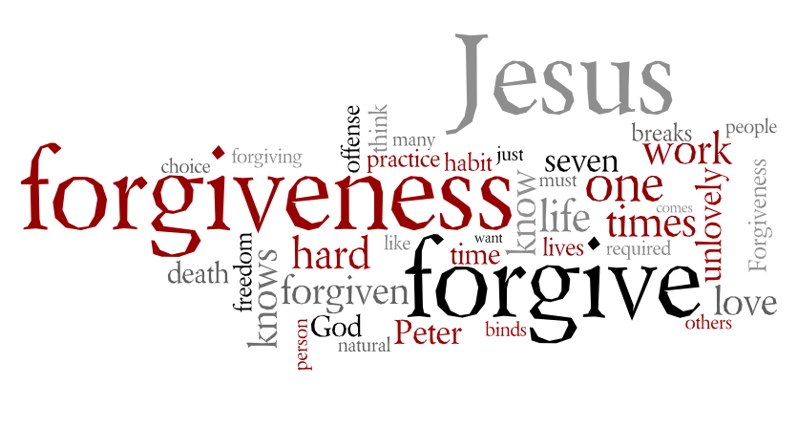Forgiveness involves us in a whole way of life that is shaped by an ever-deepening friendship with God and with other people. The central goal of this practice is to reconcile, to restore communion — with God, with one another, and with the whole creation.
In order to participate in the practice of forgiveness, we need to unlearn those things that divide and destroy communion, including our own habits of thought, feeling, and action. We need to learn to see and live as forgiven and forgiving people.
- How do people who have experienced forgiveness react when others make mistakes?
- When have you seen vengeance averted in creative ways?
- How can we avoid reproducing violence, and still take seriously people’s responsibilities for their actions?
What kinds of words, gestures, and actions could be offered so that the possibility of a new relationship can begin to emerge?
- Words of gratitude: “Thanks for your kindness in doing this.” “I forgive you, let’s work this out.” “I’m sorry, please forgive me.”
- A gesture such as a handshake—originally a sign that one is not carrying a weapon in the right hand.
- Filling out a “bill of forgiveness” to give to another person, ritually signifying the transaction that has been communicated between the two persons.
- The offering and receiving of food as a sign of hospitality; it is not easy to eat your enemy’s food, because so much is at stake.
How does worship help you experience forgiveness?
- What in this Sunday’s prayer of confession helps you identify sin and brokenness in your life and relationships?
- What in worship helps you experience forgiveness?
- What forgiveness do you need to offer in response to hearing that you are forgiven?
- What if forgiving seventy times seven (Matthew 18:21-22) could make forgiveness habitual? How do regular liturgical practices and prayers of confession, the kiss of peace, washing feet, baptism, and assurances of pardon till the ground for planting forgiveness and making it habitual?
Facing the Obstacles to Forgiveness
- Forgiveness does not merely refer backward to the absolution of guilt; it also looks forward to the restoration of community. What part might forgiveness play in breaking cycles of violence and abuse in our families and our communities? How do we explain our fascination with violence and hatred in the media?
- Part of the problem of wanting to practice forgiveness is that we are often less sure of what we love than of what we hate. When have you noticed someone retaliating by choosing self-destruction over reconciliation?
- Anger is a sign that something needs to change. When might bitterness and hatred seem justified? When might anger lead to appropriate resistance and insistent action for change? What is the danger even in righteous indignation?
Building Communities of Forgiveness
Even a forgiving community has boundaries, especially when forgiveness is abused. What boundaries are evident in the parable of the merciless servant (Matthew 18:23-35)? When might reconciliation require separation? What boundaries does your community set to guard against abuse of forgiveness?
Before going to sleep, consciously let go of the hurts and angers of the day.
Regard each evening as the beginning of a new day. Create a simple ritual of silence, word and gesture that allows you to let go of hurts and angers.
Face your most recent experience of when forgiveness did not happen.
Can you find forgiveness by walking in the shoes of the other person? Are you willing to speak truthfully and patiently about your personal conflicts?
Commit to pray for your enemy.
Pray simply and directly for yourself and for your enemy. Pray as often as it takes to discover forgiveness and reconciliation. Ask someone to anoint you for healing this relationship.
Reflect on ways forgiveness does and doesn’t happen throughout the course of a week.
Keep journals and note situations of small and large conflict and how they were resolved (or not). What could you do to heal those broken moments?
Write a letter to someone you are struggling to forgive.
State clearly what the injury is, why it still hurts, and why it is difficult to forgive. Imagine lifting up this difficulty and giving it to God. Then burn the letter and scatter its ashes. Bless your enemies. Imagine wishing the best for the ones you find it hard to forgive … not just what you want them to be or do, but the richness of all God has to offer. Pray through this image, using words such as “I ask you with all my heart, O merciful God, to pour out your bountiful blessings upon my enemies. Do not let our fractured relationship cause them harm. Deal gently with them, gracious God, and repair what has been broken and torn so that together we might glorify and serve you in all that we say and do.” If you cannot do this yourself, ask a trusted friend to pray for you and for your enemy.
Sources: practicingourfaith.org and Practicing Our Faith: A Way of Life for a Searching People
